
Polokwane: The Heartbeat of Limpopo
Polokwane, meaning 'Place of Safety', is the vibrant capital of Limpopo Province in South Africa. Known for its rich cultural heritage and stunning landscapes, Polokwane offers a unique blend of urban life and natural beauty. The city's welcoming atmosphere and diverse attractions make it a must-visit destination for those looking to explore the northern part of South Africa. Polokwane is home to the fascinating Polokwane Game Reserve, where you can spot a variety of wildlife including zebras, giraffes, and over 21 species of antelope. The reserve is perfect for a day of hiking, bird-watching, or simply enjoying a picnic in the great outdoors. For a touch of history and culture, visit the Polokwane Art Museum and the Hugh Exton Photographic Museum, both offering a glimpse into the city's rich past and artistic heritage. The bustling city center is filled with shops, markets, and restaurants where you can sample local delicacies such as biltong and pap. Don't miss the opportunity to explore the vibrant Market Street, where you can find everything from handmade crafts to fresh produce. Polokwane also boasts several beautiful parks, including the serene Peter Mokaba Stadium Park, perfect for a relaxing afternoon stroll. Whether you're an adventure seeker, a history buff, or simply looking to relax, Polokwane has something to offer everyone. Its friendly locals and rich cultural tapestry ensure that every visitor leaves with unforgettable memories.
Local tips in Polokwane
- Visit Polokwane Game Reserve early in the morning for the best wildlife viewing experience.
- Try local dishes like biltong and pap at the city's eateries for an authentic taste of South African cuisine.
- Wear comfortable walking shoes when exploring the markets and city center.
- Carry cash for purchases at local markets, as not all vendors accept cards.
- Check out the local events calendar for cultural festivals and events happening during your visit.
Polokwane: The Heartbeat of Limpopo
Polokwane, meaning 'Place of Safety', is the vibrant capital of Limpopo Province in South Africa. Known for its rich cultural heritage and stunning landscapes, Polokwane offers a unique blend of urban life and natural beauty. The city's welcoming atmosphere and diverse attractions make it a must-visit destination for those looking to explore the northern part of South Africa. Polokwane is home to the fascinating Polokwane Game Reserve, where you can spot a variety of wildlife including zebras, giraffes, and over 21 species of antelope. The reserve is perfect for a day of hiking, bird-watching, or simply enjoying a picnic in the great outdoors. For a touch of history and culture, visit the Polokwane Art Museum and the Hugh Exton Photographic Museum, both offering a glimpse into the city's rich past and artistic heritage. The bustling city center is filled with shops, markets, and restaurants where you can sample local delicacies such as biltong and pap. Don't miss the opportunity to explore the vibrant Market Street, where you can find everything from handmade crafts to fresh produce. Polokwane also boasts several beautiful parks, including the serene Peter Mokaba Stadium Park, perfect for a relaxing afternoon stroll. Whether you're an adventure seeker, a history buff, or simply looking to relax, Polokwane has something to offer everyone. Its friendly locals and rich cultural tapestry ensure that every visitor leaves with unforgettable memories.
When is the best time to go to Polokwane?
Iconic landmarks you can’t miss
Limpopo Mall Polokwane
Experience shopping, dining, and entertainment at Limpopo Mall in Polokwane, a hub of local culture and retail excitement.
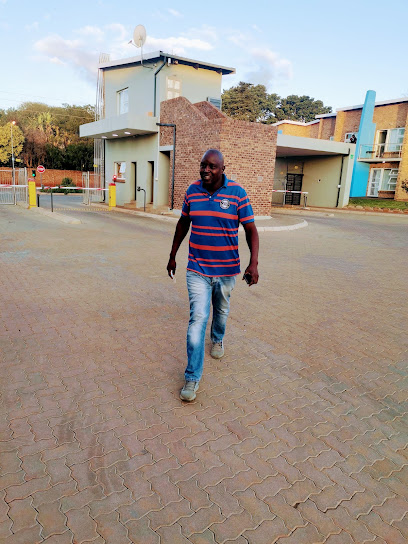
Meropa Casino & Entertainment World
Discover the excitement of gaming, diverse dining, and leisure at Meropa Casino & Entertainment World in Polokwane.
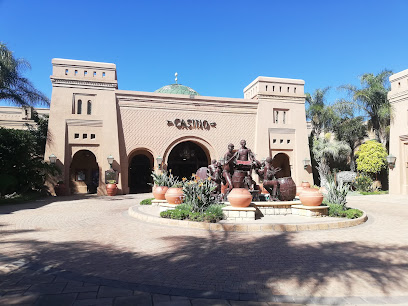
Chesa Nyama Waterland
Discover the vibrant flavors of South Africa at Chesa Nyama Waterland, Polokwane's top bar and restaurant for authentic dining experiences.
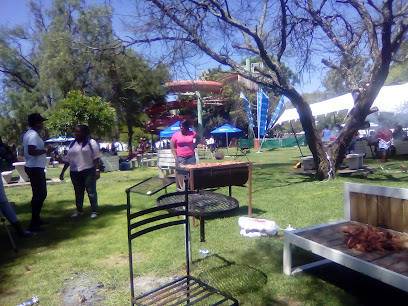
Polokwane Royal
Experience comfort and hospitality at Polokwane Royal, your ideal guest house in the heart of Polokwane Central, South Africa.

Splash Polokwane
Discover the excitement of Splash Polokwane, a family-friendly water park offering thrilling rides, relaxing pools, and a vibrant atmosphere for all ages.
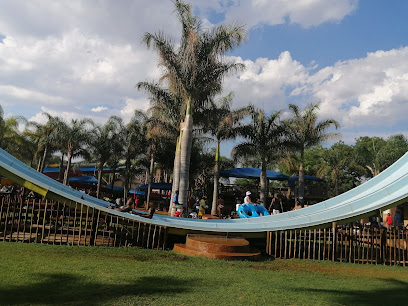
Golden Pillow Overnight Accommodation
Discover comfort and convenience at Golden Pillow Overnight Accommodation, your ideal retreat in Polokwane, offering dining, events, and cozy stays.
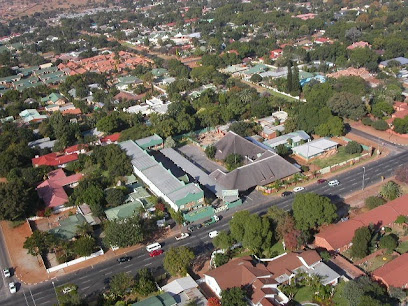
Polokwane Snake & Reptile Park
Discover the fascinating world of reptiles at Polokwane Snake & Reptile Park, a family-friendly destination for wildlife enthusiasts in South Africa.
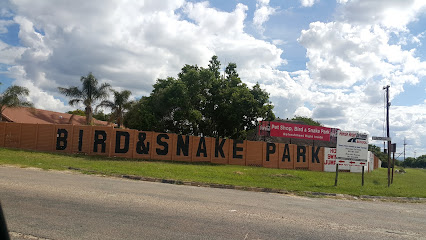
Polokwane Nature Reserve
Explore the stunning landscapes and diverse wildlife at Polokwane Nature Reserve, a sanctuary for nature lovers in the heart of South Africa.
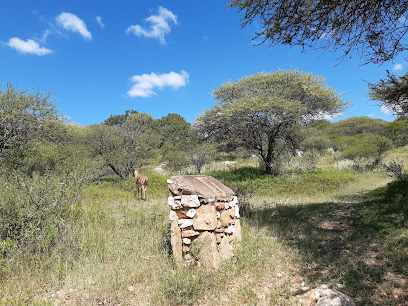
Uhuru Cafe & Wine Emporium
Experience the vibrant flavors of South Africa at Uhuru Cafe & Wine Emporium in Polokwane, where delightful dishes and fine wines await.
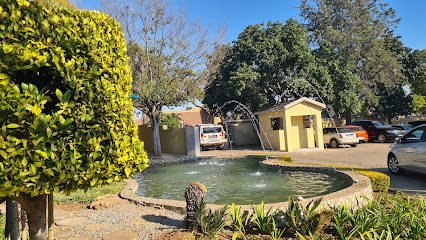
Polokwane Cricket Club
Explore the vibrant Polokwane Cricket Club, a perfect blend of sport, nature, and community spirit in the heart of Polokwane.
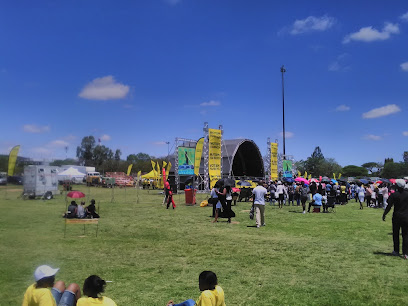
Mosate Lodge - Polokwane
Experience the perfect blend of comfort, tradition, and modern amenities at Mosate Lodge, your home away from home in Polokwane.
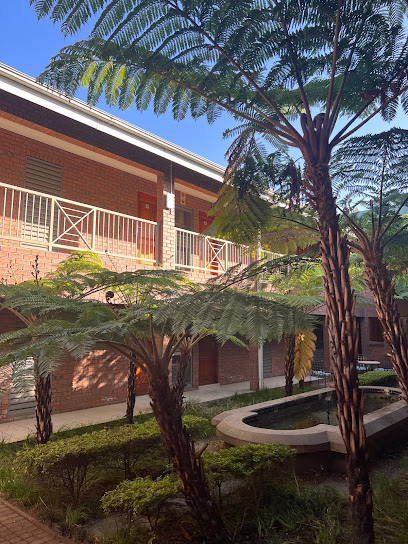
Polokwane Municipal Swimming Pool
Experience the refreshing joy of the Polokwane Municipal Swimming Pool, a popular spot for relaxation and fun in the sun in the heart of Polokwane.
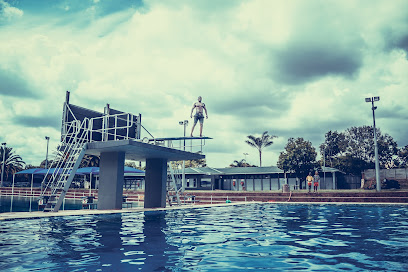
The Pietersburg Club
Experience the heart of Polokwane at The Pietersburg Club, a vibrant venue for dining, events, and cultural engagement in the heart of South Africa.
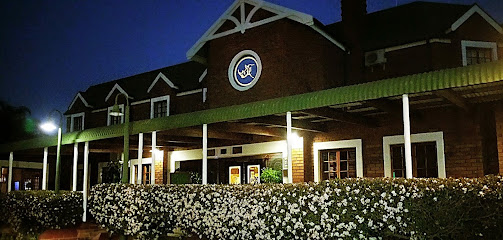
Victoria Place
Discover the charm and comfort of Victoria Place, your ideal guest house in Polokwane for a relaxing getaway amidst South Africa's vibrant culture.

Polokwane Place
Experience the warmth and comfort of Polokwane Place, a welcoming guest house in the heart of Polokwane with cozy accommodations and delightful local flair.
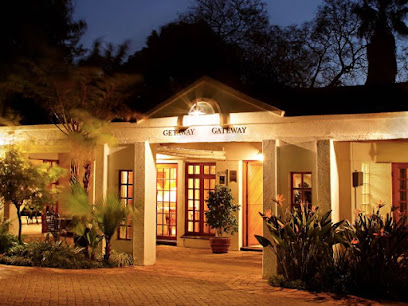
Unmissable attractions to see
Meropa Casino & Entertainment World
Discover the excitement of gaming, dining, and entertainment at Meropa Casino & Entertainment World in Polokwane, South Africa.
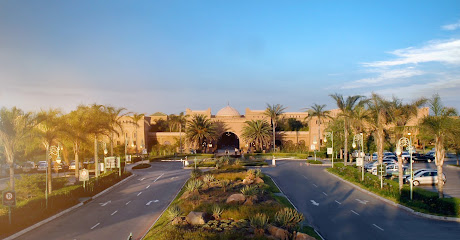
Splash Polokwane
Experience endless fun at Splash Polokwane, the ultimate water park in Limpopo, featuring thrilling slides, relaxing pools, and family-friendly attractions.
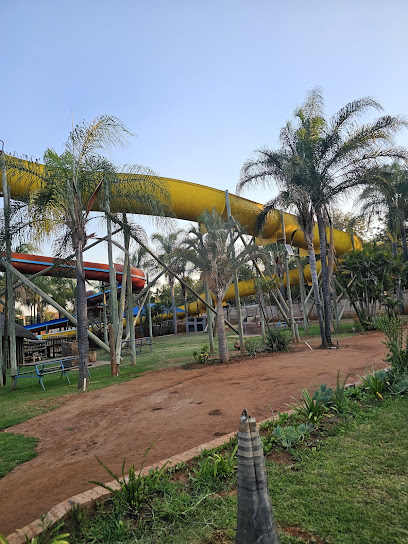
Polokwane Snake & Reptile Park
Discover the thrilling and educational experience at Polokwane Snake & Reptile Park, home to a diverse array of snakes and reptiles in a lush, family-friendly environment.
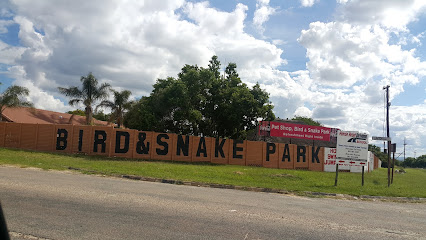
Polokwane Nature Reserve
Explore the diverse wildlife and serene landscapes at Polokwane Nature Reserve, a hidden gem in South Africa's natural beauty.
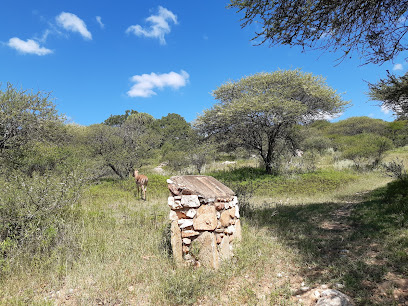
Flora Park Dam
Experience the tranquility of Flora Park Dam in Polokwane, where nature meets recreation and relaxation in a stunning outdoor setting.
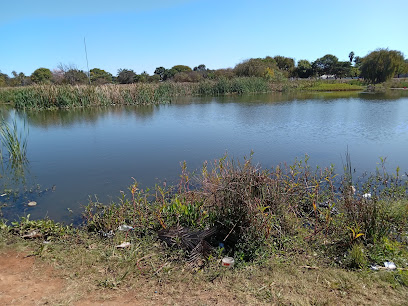
Seshego Beach Front (PARK)
Experience the tranquil beauty of Seshego Beach Front Park, a serene escape in Polokwane, perfect for relaxation and family outings amidst nature.
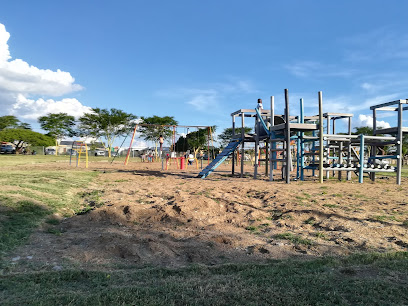
Zone 4 park
Experience the natural beauty and serene atmosphere of Zone 4 Park, a perfect spot for relaxation and outdoor fun in Polokwane.
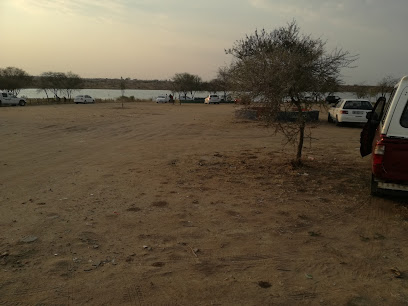
Polokwane Art Museum
Explore the Polokwane Art Museum, where contemporary and traditional South African art come alive in a serene and inspiring environment.
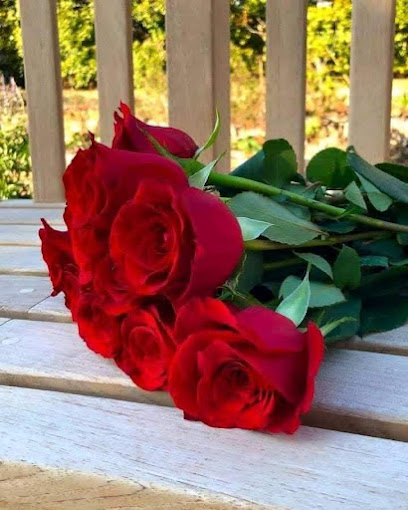
Bakone Malapa Open-Air Museum
Discover the vibrant culture of the Bakone people at Bakone Malapa Open-Air Museum in Polokwane - a captivating journey through history and tradition.
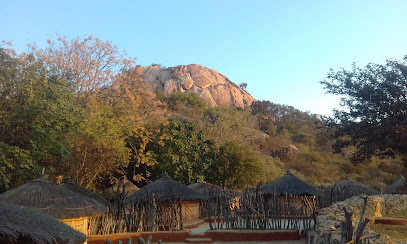
Tom Naude Park
Experience natural beauty and tranquility at Tom Naude Park, a serene escape in Polokwane perfect for relaxation, picnics, and family outings.
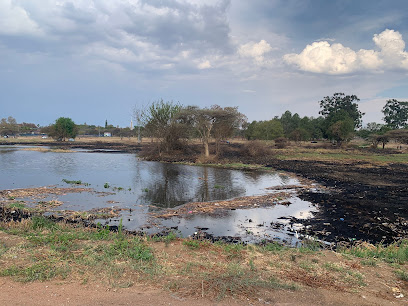
Raphala C&GP
Experience the beauty and tranquility of Raphala C&GP, a picturesque city park in Polokwane perfect for relaxation and nature walks.
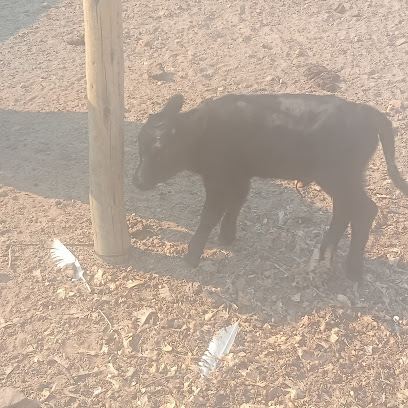
Laddanna Community Park
Discover the serene beauty of Laddanna Community Park in Polokwane, a perfect escape for nature lovers and families seeking relaxation.
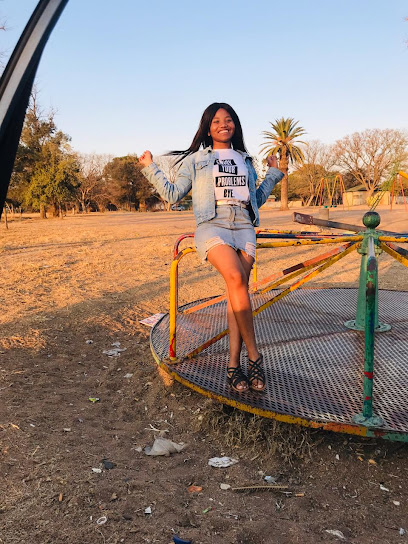
Manru Park.
Experience the serene beauty and recreational charm of Manru Park, a tranquil oasis in Polokwane perfect for families and nature lovers.
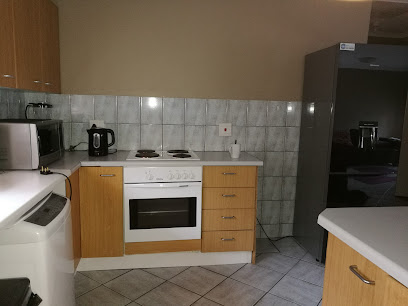
Splash Waterpark & JumpZone
Dive into adventure at Splash Waterpark & JumpZone, where fun meets excitement in Dalmada AH, South Africa.
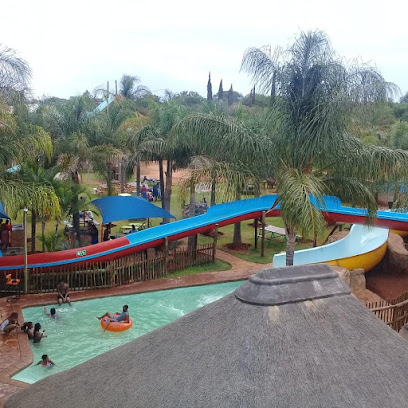
Wildthingz - Meropa casino
Discover the wonders of wildlife at Wildthingz, the enchanting wildlife park in Polokwane, within the vibrant Meropa Casino complex.
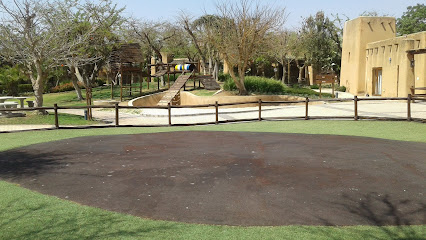
Essential places to dine
Nguni Grill
Discover the culinary delights at Nguni Grill – where every meal tells a story in Polokwane.
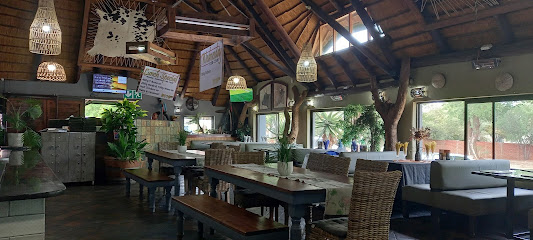
Amarillo Spur Steak Ranch
Experience the best of South African cuisine at Amarillo Spur Steak Ranch with delectable steaks and family-friendly dining.
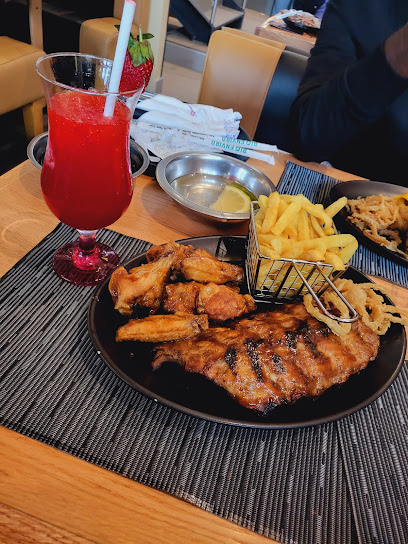
Falcon Rock Spur Steak Ranch
Experience family-friendly dining at Falcon Rock Spur Steak Ranch with delicious steaks, burgers, and hearty breakfasts in the heart of Polokwane.
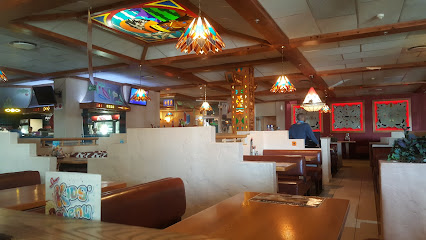
Mugg & Bean
Experience comfort dining at Mugg & Bean in Polokwane with delicious meals and aromatic coffee in a cozy setting.
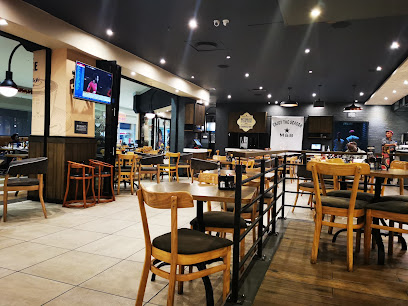
RocoMamas Polokwane
Experience gourmet hamburgers in a lively atmosphere at RocoMamas Polokwane - the ultimate destination for fast food lovers!
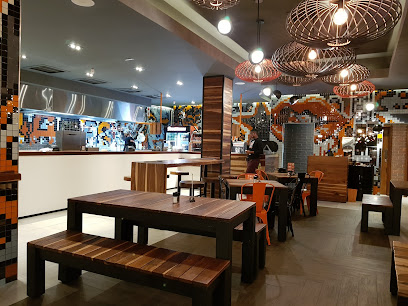
COFI - Savannah Mall
Discover culinary delights at COFI - Savannah Mall in Polokwane; where delicious food meets vibrant atmosphere.
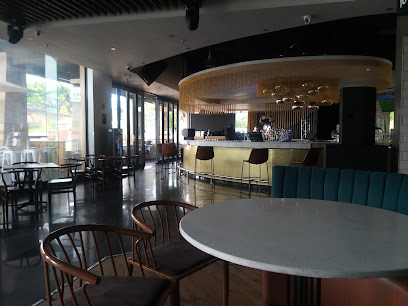
Ambiance Restaurant
Experience exquisite South African cuisine in a cozy atmosphere at Ambiance Restaurant in Polokwane.
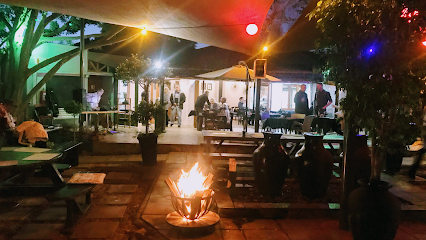
Saskia Restaurant, Fusion Boutique Hotel
Experience culinary excellence at Saskia Restaurant in Polokwane's Fusion Boutique Hotel—where fine dining meets local flavor.
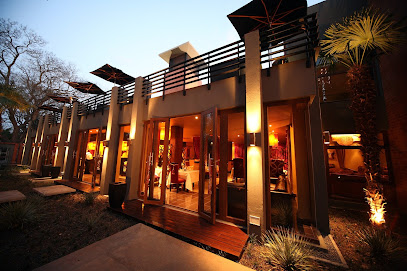
Tuscan Place @ Pavilion
Experience authentic Italian flavors at Tuscan Place @ Pavilion in Polokwane – where culinary excellence meets delightful ambiance.
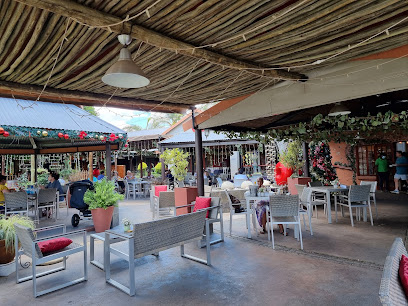
Uhuru Cafe & Wine Emporium
Discover culinary excellence at Uhuru Cafe & Wine Emporium in Polokwane - where local flavors meet global tastes.
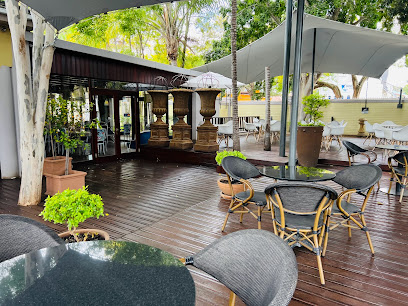
Asha's Restaurant
Experience authentic South African flavors at Asha's Restaurant in Polokwane – where every meal tells a story.
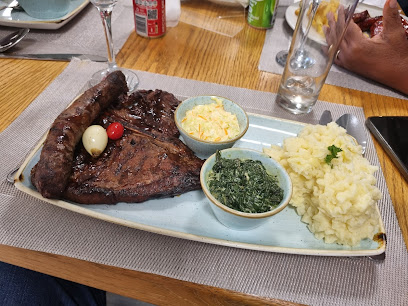
Ocean Basket Mall of the North
Experience exquisite seafood dining at Ocean Basket Mall of the North - perfect for families and sushi lovers alike.
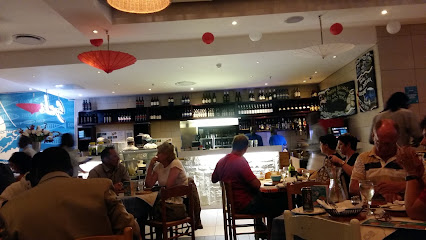
Dros Polokwane
Discover Dros Polokwane: Where Local Flavors Meet Modern Dining in Limpopo's Heart.
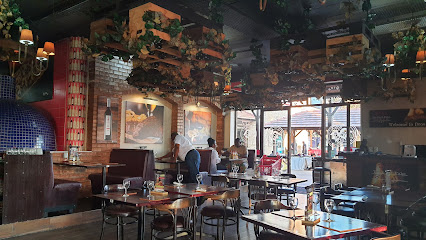
Yummy Kitchen Polokwane
Discover the authentic flavors of South Africa at Yummy Kitchen Polokwane – where every meal is a celebration of taste.
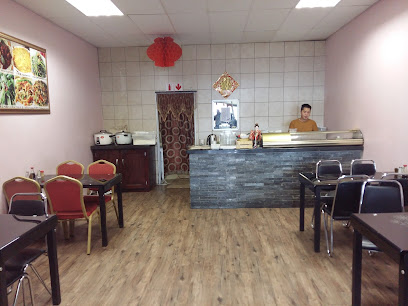
Bosveld Bar & Grill
Discover the flavors of South Africa at Bosveld Bar & Grill in Polokwane – where every meal tells a story.
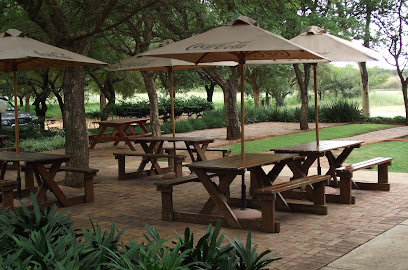
Markets, malls and hidden boutiques
Mall of the North
Explore the vibrant Mall of the North in Polokwane, a shopper's paradise with diverse stores, dining options, and family-friendly entertainment.
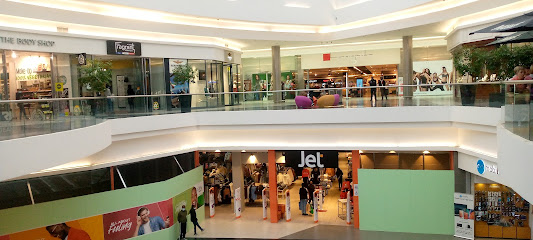
Savannah Mall
Discover the vibrant shopping and dining experience at Savannah Mall in Polokwane, South Africa, where every visit promises delightful finds.
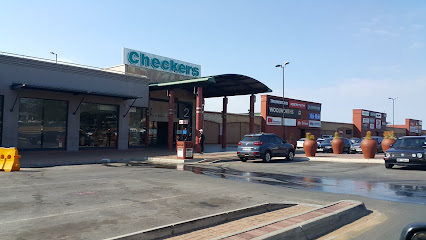
Limpopo Mall Polokwane
Discover the vibrant shopping experience at Limpopo Mall in Polokwane, featuring diverse retail stores, dining options, and a lively atmosphere.
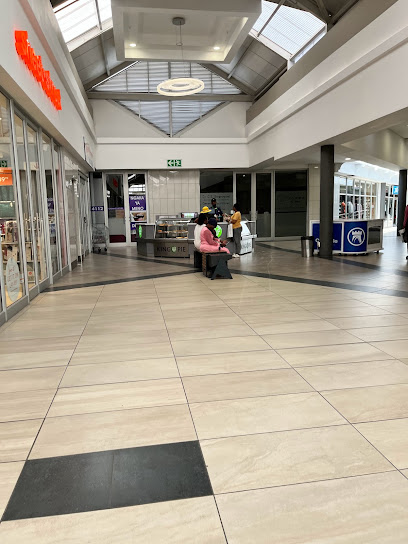
Game Polokwane
Explore a diverse range of products at Game Polokwane, your ultimate shopping destination for electronics, appliances, and more in the heart of South Africa.
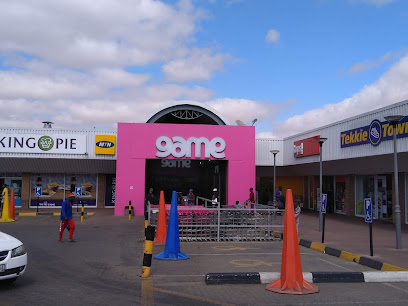
CODE Limpopo Mall
Explore CODE Limpopo Mall in Polokwane, where shopping meets entertainment with a variety of stores and delightful dining options.
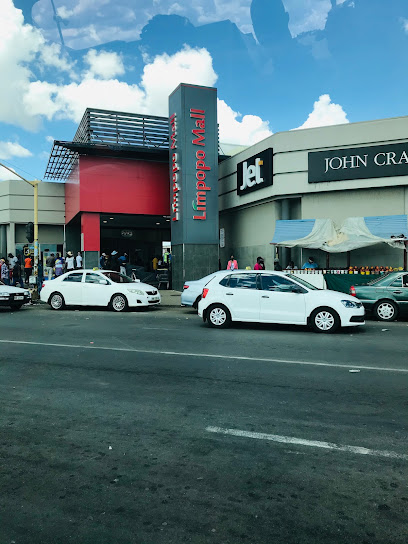
Side Step Limpopo Mall
Explore Side Step Limpopo Mall in Polokwane for a unique blend of shopping, fashion, and local culture, all in one vibrant location.
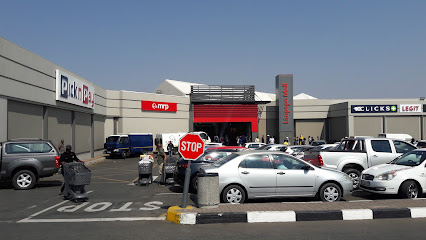
Mr Price @ Mall of the North
Explore affordable fashion at Mr Price in Mall of the North, Polokwane's ultimate shopping destination for trendy clothing and accessories.
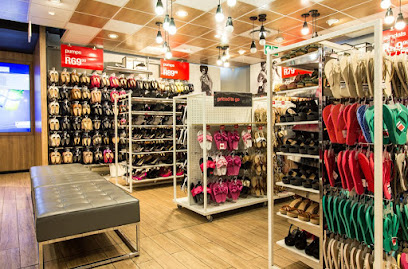
Polokwane Life Style Centre
Explore the Polokwane Life Style Centre for unique books and quality printing services in a vibrant atmosphere that embodies local creativity.
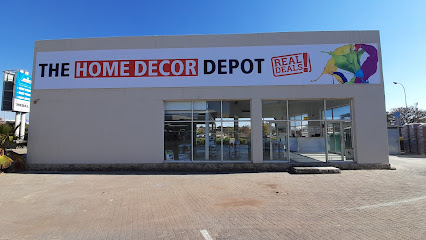
Lighthouse Mall
Explore Lighthouse Mall in Polokwane for a unique shopping experience with diverse shops and delicious dining options in a vibrant atmosphere.
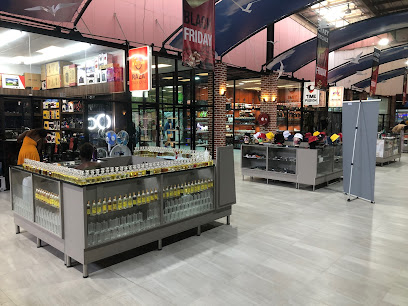
Cape Union Mart
Explore the great outdoors with quality gear from Cape Union Mart, Polokwane's premier outdoor clothing and equipment store.
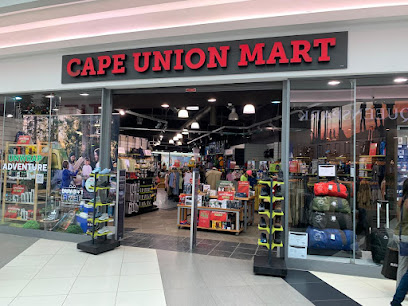
Thornhill Shopping Centre
Discover diverse shopping, dining, and entertainment at Thornhill Shopping Centre in Polokwane, a vibrant destination for tourists and locals alike.
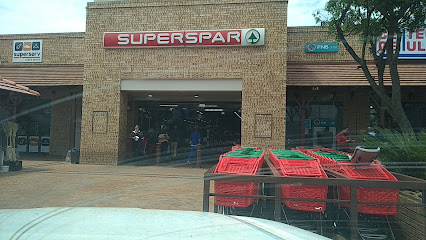
Levant Fabrics & Habby
Explore Levant Fabrics & Habby in Polokwane for a diverse selection of fabrics and haberdashery that inspires creativity and craftsmanship.
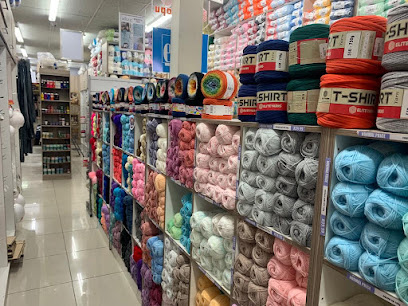
Mr Price Polokwane Savannah Mall
Explore trendy fashion at Mr Price Polokwane Savannah Mall, your go-to clothing store for stylish apparel in the heart of Limpopo.
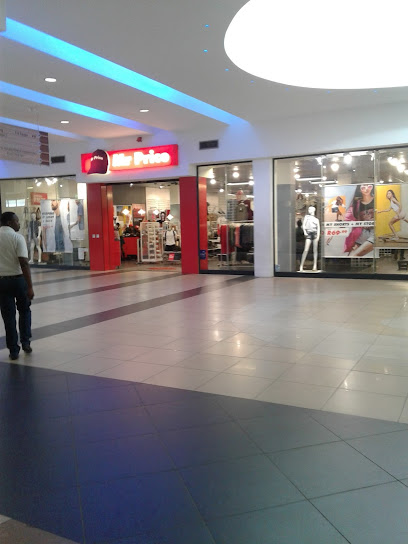
POLO Mall of the North
Explore the vibrant POLO Mall of the North in Polokwane, where shopping, dining, and entertainment converge for an unforgettable experience.
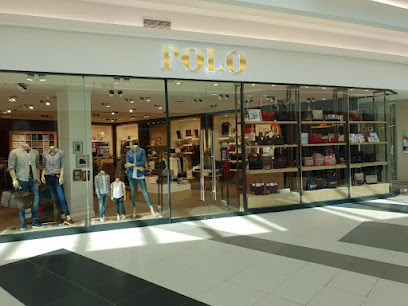
Edgars Polokwane
Experience the vibrant shopping culture at Edgars Polokwane, where fashion meets affordability in the heart of South Africa.
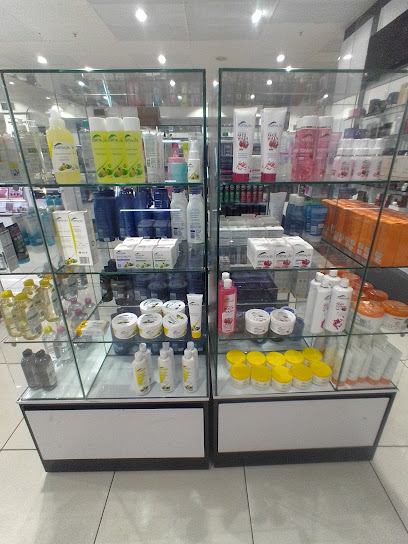
Essential bars & hidden hideouts
Chesa Nyama Waterland
Experience the vibrant atmosphere and delicious braai dishes at Chesa Nyama Waterland in Polokwane, a true culinary delight in South Africa.
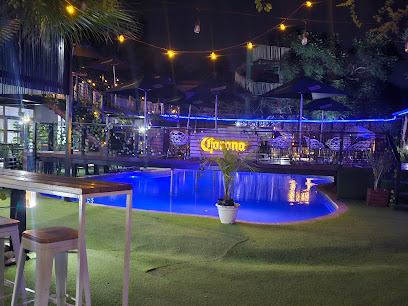
Mofolo Bar Lounge
Experience vibrant nightlife at Mofolo Bar Lounge, a lively venue in Polokwane with great drinks and a welcoming atmosphere.
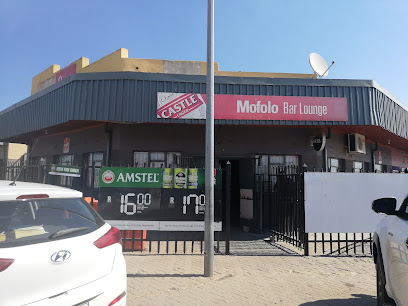
Cheerz Pub & Grill
Discover Cheerz Pub & Grill in Polokwane—where delightful grilled dishes meet a vibrant pub atmosphere, perfect for relaxation and socializing.
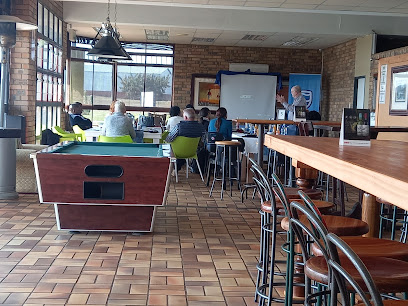
DJ's Restaurant
Discover the vibrant nightlife at DJ's Restaurant, Polokwane's ultimate destination for dining, dancing, and entertainment.
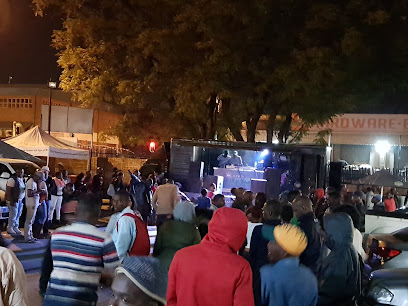
Belinda's Tavern
Discover the local charm and vibrant nightlife at Belinda's Tavern in Polokwane, where good drinks and great company await.
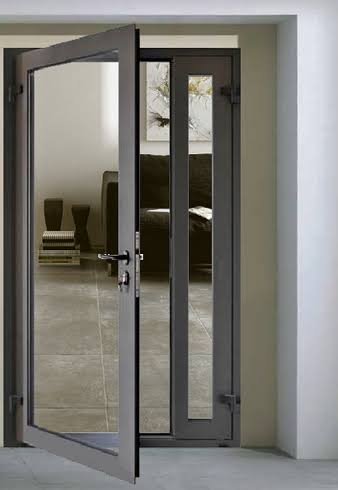
ShortLeft Pub and Grill
Discover the lively ShortLeft Pub and Grill in Polokwane, where delightful cuisine meets a vibrant atmosphere perfect for relaxation and socializing.
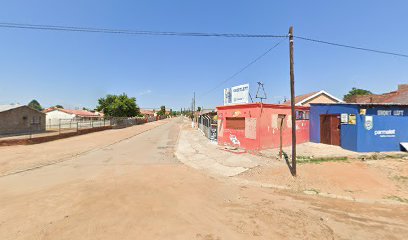
Watertenk Bar
Discover the vibrant nightlife at Watertenk Bar in Polokwane, where great drinks and a lively atmosphere await every visitor.
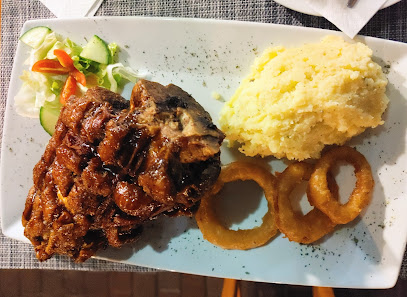
Rickey's Vlei
Discover the vibrant nightlife of Polokwane at Rickey's Vlei, a lively bar with great music and a welcoming atmosphere for all.
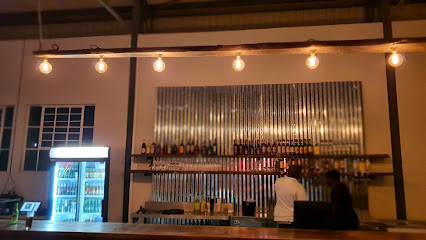
PRIVATE PUB RESIDENTS ONLY
Unwind at Polokwane's PRIVATE PUB RESIDENTS ONLY, where local culture and a cozy atmosphere come together for a memorable experience.
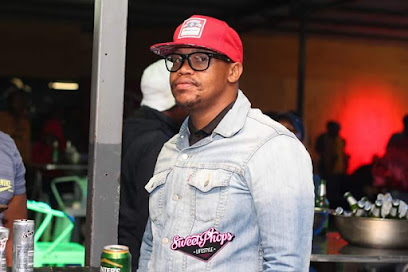
Sports Tavern & Restaurant
Experience the ultimate sports fan haven at Sports Tavern & Restaurant in Polokwane, where good food meets great games!
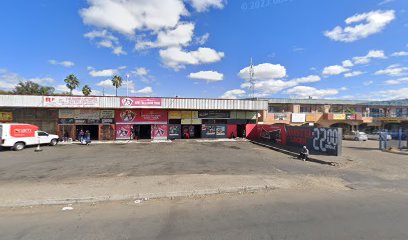
10 to 9 Shisa Pub and Grill
Discover the vibrant atmosphere and delicious cuisine at 10 to 9 Shisa Pub and Grill in Polokwane, where local culture meets culinary delight.
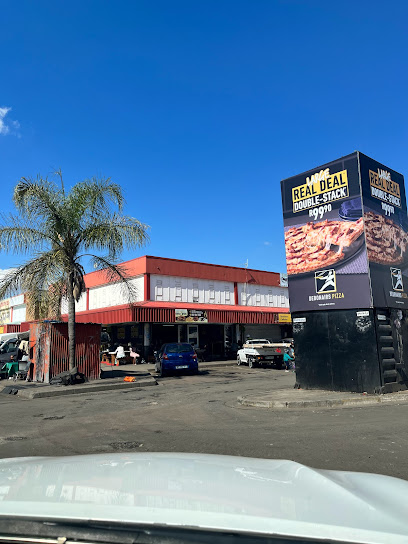
Joy & Sons Pub
Discover Joy & Sons Pub in Polokwane: A vibrant bar offering local brews, hearty meals, and a taste of South African culture.
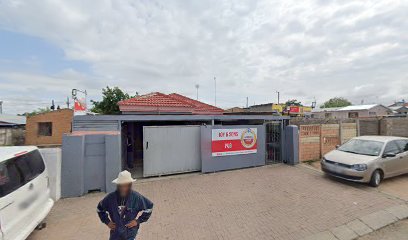
Gmg liquor restaurant
Experience the vibrant nightlife at Gmg Liquor Restaurant, Polokwane's premier bar with a lively atmosphere and delightful drinks.

Vans Sports Bar
Experience the vibrant nightlife at Vans Sports Bar in Polokwane, where great drinks, sports, and a lively atmosphere await every visitor.

Local Phrases
-
- HelloDumela
[doo-meh-lah] - GoodbyeRobala hantle
[roh-bah-lah hahn-tleh] - YesEe
[ee] - NoNnyaa
[nyah] - Please/You're welcomeKe kopa
[keh koh-pah] - Thank youKe a leboga
[keh ah leh-boh-gah] - Excuse me/SorryNtshwarele
[ntshwah-reh-leh] - How are you?O kae?
[oh kah-eh] - Fine. And you?Ke gona. Le wena?
[keh goh-nah. leh weh-nah] - Do you speak English?O bua Setswana?
[oh boo-ah set-swah-nah] - I don't understandGa ke itse
[hah keh eet-seh]
- HelloDumela
-
- I'd like to see the menu, pleaseKe batla ho bona menu, hape
[keh baht-lah hoh boh-nah meh-noo, hah-peh] - I don't eat meatGa ke je nama
[hah keh jeh nah-mah] - Cheers!Ga le dumedisa!
[hah leh doo-meh-dee-sah] - I would like to pay, pleaseKe batla ho eka, hape
[keh baht-lah hoh eh-kah, hah-peh]
- I'd like to see the menu, pleaseKe batla ho bona menu, hape
-
- Help!Bothusitse!
[boh-tsoo-tsee-teh] - Go away!Tshwara ngwana!
[tshwah-rah ngwah-nah] - Call the Police!Bula pulasitiki!
[boo-lah poo-lah-see-tee-kee] - Call a doctor!Bula mongwadi!
[boo-lah moh-ngwah-dee] - I'm lostKe nyaka
[keh nyah-kah] - I'm illKe boloi
[keh boh-loh-ee]
- Help!Bothusitse!
-
- I'd like to buy...Ke batla ho rekela...
[keh baht-lah hoh reh-keh-lah] - I'm just lookingKe kopa ho bona fela
[keh koh-pah hoh boh-nah feh-lah] - How much is it?Ke bokae?
[keh boh-kah-eh] - That's too expensiveKe mahala haholo
[keh mah-hah-lah hah-hoh-loh] - Can you lower the price?O ka lefa sebaka?
[oh kah leh-fah seh-bah-kah]
- I'd like to buy...Ke batla ho rekela...
-
- What time is it?Ke nako mang?
[keh nah-koh mah-ng] - It's one o'clockKe efele
[keh eh-feh-leh] - Half past (10)E se kgwedi
[eh seh khweh-dee] - MorningBoemo
[boh-eh-moh] - AfternoonBosele
[boh-seh-leh] - EveningBopilong
[boh-pee-loh-ng] - YesterdayNako e tswa sekolo
[nah-koh eh tswah seh-koh-loh] - TodayNako e latelang
[nah-koh eh lah-teh-lah-ng] - TomorrowNako e nngwe
[nah-koh eh nn-gweh] - 1Eka
[eh-kah] - 2Pedwana
[peh-dwah-nah] - 3Tlhatlhamacholo
[t-lah-t-lah-mah-choh-loh] - 4Nele
[neh-leh] - 5Tlhano
[t-lah-noh] - 6Tlhaping
[t-lah-ping] - 7Moša
[moh-shah] - 8Nngwe
[nn-gweh] - 9Lesele
[leh-seh-leh] - 10Lome
[loh-meh]
- What time is it?Ke nako mang?
-
- Where's a/the...?Kae...?
[kah-eh] - What's the address?E kae leloko?
[eh kah-eh leh-loh-koh] - Can you show me (on the map)?O ka nka ho bona (ka mapetla)?
[oh kah ng-kah hoh boh-nah (kah mah-peh-tlah)] - When's the next (bus)?Ke mang ho latelang (bus)?
[keh mah-ng hoh lah-teh-lah-ng (bus)] - A ticket (to ....)Lebitso (ho ....)
[leh-beet-soh (hoh)]
- Where's a/the...?Kae...?
History of Polokwane
-
The area around Polokwane, formerly known as Pietersburg, has been inhabited for thousands of years. Archaeological evidence suggests that the region was home to prehistoric communities who left behind numerous artifacts, including tools and pottery, signifying early human settlement and activity.
-
Polokwane was founded in 1886 by Voortrekkers, a group of Dutch settlers, and was originally named Pietersburg in honor of Voortrekker leader Petrus Jacobus Joubert. The town became a key location during the South African Republic era, serving as a center for trade and administration.
-
During the Anglo-Boer War (1899-1902), Polokwane was an important strategic location. British forces occupied the town in 1901, and it served as a military base and supply depot. The war had a significant impact on the local population and infrastructure.
-
In 2002, the town's name was officially changed from Pietersburg to Polokwane, which means 'Place of Safety' in Northern Sotho. This change reflected the cultural and political shifts in South Africa as the country moved away from its apartheid past. Polokwane has since grown into a bustling city and the capital of Limpopo Province.
-
Polokwane is a melting pot of cultures, with a rich tapestry of traditions and languages. The city is home to several cultural institutions, including the Polokwane Art Museum, which showcases local and national art, and the Bakone Malapa Northern Sotho Open-Air Museum, which offers insights into the traditional lifestyle of the Northern Sotho people.
-
Over the years, Polokwane has developed into an economic hub in the Limpopo Province. The city is a center for agriculture, manufacturing, and commerce. Its strategic location along major transportation routes has facilitated trade and business growth, contributing to the overall development of the region.
-
Polokwane played a significant role during the 2010 FIFA World Cup, hosting several matches at the Peter Mokaba Stadium. This event led to significant infrastructure development in the city, including improved roads, public transport, and hospitality services, which have continued to benefit residents and visitors alike.
Polokwane Essentials
-
Polokwane is accessible via Polokwane International Airport (PTG), which has flights connecting to major cities in South Africa. Alternatively, you can drive from Johannesburg, which is approximately 300 kilometers away and takes around 3.5 hours via the N1 highway. Bus services from various cities also connect to Polokwane, offering a more economical option.
-
Polokwane has a variety of transportation options including taxis, car rentals, and local minibus taxis. Metered taxis are available and can be booked via phone or app. Minibus taxis are common and provide a budget-friendly option, but they can be crowded and less reliable. Car rentals offer the most flexibility for exploring nearby attractions.
-
The official currency in South Africa is the South African Rand (ZAR). Credit and debit cards are widely accepted in hotels, restaurants, and larger shops, but it's advisable to carry some cash for smaller establishments and markets. ATMs are readily available throughout Polokwane.
-
Polokwane is generally safe for tourists, but like any city, it's important to exercise caution. Avoid walking alone at night, especially in unfamiliar areas. Neighborhoods to be cautious in include Seshego and parts of the CBD. Always keep an eye on your belongings in crowded places and avoid displaying valuables openly.
-
In case of an emergency, dial 10111 for police assistance and 10177 for medical emergencies. It's advisable to have travel insurance that covers medical emergencies. Polokwane has several hospitals and clinics, including Mediclinic Limpopo and Polokwane Provincial Hospital. Pharmacies are widely available for minor health issues.
-
Fashion: Do dress modestly, especially when visiting local communities and religious sites. Avoid wearing overly revealing clothing. Religion: Do respect local customs and traditions, especially in religious settings. Remove your shoes when entering places of worship. Public Transport: Do be patient and polite when using minibus taxis. Don't argue with the driver. Greetings: Do greet people with a friendly 'Hello' or 'Dumela' (hello in Sepedi). A handshake is common. Eating & Drinking: Do try local dishes and accept food offerings graciously. Don't refuse hospitality as it is considered impolite.
-
To experience Polokwane like a local, visit the Polokwane Game Reserve for wildlife viewing and outdoor activities. Explore the local markets such as the Polokwane Flea Market for unique crafts and fresh produce. Engage with locals, who are often friendly and willing to share their culture and history. Don’t miss a visit to the Bakone Malapa Northern Sotho Open-Air Museum to learn about the region's heritage.
Trending Landmark in Polokwane
-
Limpopo Mall Polokwane
-
Meropa Casino & Entertainment World
-
Chesa Nyama Waterland
-
Polokwane Royal
-
Splash Polokwane
-
Golden Pillow Overnight Accommodation
-
Polokwane Snake & Reptile Park
-
Polokwane Nature Reserve
-
Uhuru Cafe & Wine Emporium
-
Polokwane Cricket Club
-
Mosate Lodge - Polokwane
-
Polokwane Municipal Swimming Pool
-
The Pietersburg Club
-
Victoria Place
-
Polokwane Place
Nearby Cities to Polokwane
-
Things To Do in Nelspruit
-
Things To Do in Pretoria
-
Things To Do in Selebi-Phikwe
-
Things To Do in Mahalapye
-
Things To Do in Palapye
-
Things To Do in Johannesburg
-
Things To Do in Mbabane
-
Things To Do in Serowe
-
Things To Do in Mhlume
-
Things To Do in Malkerns
-
Things To Do in Manzini
-
Things To Do in Francistown
-
Things To Do in Gaborone
-
Things To Do in Matola
-
Things To Do in Maputo









